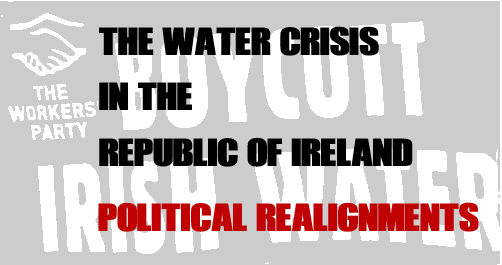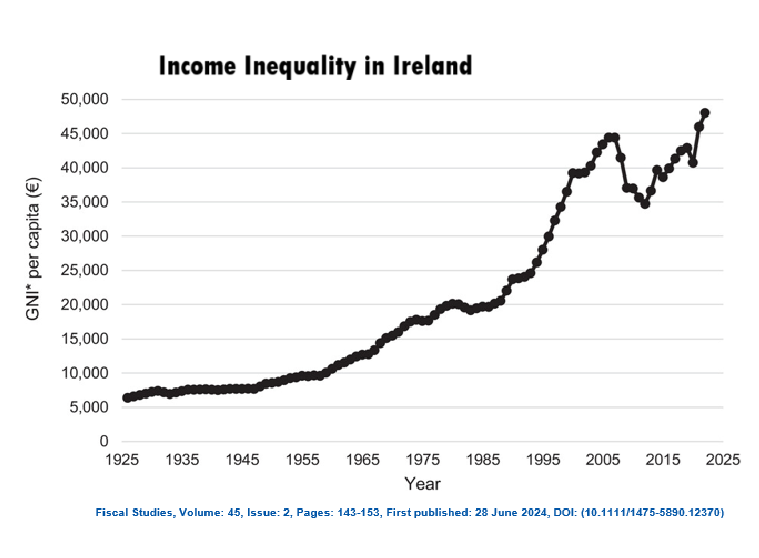
In June 2015 Right2Water established the Right2Change campaign in attempt to take the campaign in a broader political direction beyond the single issue of water. However, due to internal divisions within the campaign, this push for additional rights beyond water never fully took off. The electoral strategy was ‘nebulous’ and trade unions could not agree on the nature of this new political formation. The Workers Party decided not to engage within Right2Change, which fizzled out.
The period since the end of the protests has seen the recovery of the Irish economy, as Ireland has renewed its status as an outpost for American capital. However, this ‘recovery’ was limited to FDI-orientated sections of the economy.
Working class neighbourhoods have not recovered – instead the deprivation rate rose from 11 per cent in 2007 to 31 per cent by 2014. Between 2016 and 2023, 22% of people experienced deprivation at least once in two consecutive years, and almost half of these were in persistent deprivation.

Struggles over public water are ongoing. In order to overcome economic crises, there is constant systemic pressure towards capitalist expansion into new areas of appropriation and water remains a key target for capital. Water quality is poor in certain areas and infrastructure needs to be improved by Uisce Éireann and not outsourced to private businesses. A report from the Environmental Protection Agency (EPA) published in July 2025 found that almost 500,000 people in the State are served by ‘at-risk’ water supplies which need to be urgently addressed by Uisce Éireann. The Irish Times noted that, “while public water is safe to drink for the vast majority of people, the agency’s drinking water report for 2024, … shows there were 45 supplies serving 497,000 people on the at-risk list”.
For example, in March 2025 Unite the union reported that parts of Cork city were impacted by ‘brown water’, which is found when sediment discolours the liquid. Tests carried out by the union found excessive levels of manganese and iron. Unite stated that the lab that carried out the test said the water was unfit for consumption. According to the union, “Uisce Éireann’s operations have faced a ‘crisis’ in Cork since management outsourced the ownership of a water treatment plant in the area”

In the immediate aftermath of the water protests, the real political beneficiary from the mass reaction to austerity was the Sinn Fein Party, which was until recently most popular political party in the South of Ireland. In terms of political consciousness, empirical evidence suggests that since 2008, the Irish electorate has been moving to the centre-left, currently occupied by Sinn Féin and smaller Trotskyite groups, parties in some ways similar to Podemos and Syriza. Dublin, with a concentration of high-growth multinationals tend has rapidly growing house prices, high levels of market income inequalities, and very unequal access to housing wealth and Sinn Féin has made housing central to its current platform.
The job of the Workers Party is to expose the hollowness of the Sinn Féin response to the crises of capitalism and to expose the rank opportunism of those on the Trotskyist left in parliament, who see themselves as part of a future left coalition government led by Sinn Féin.
